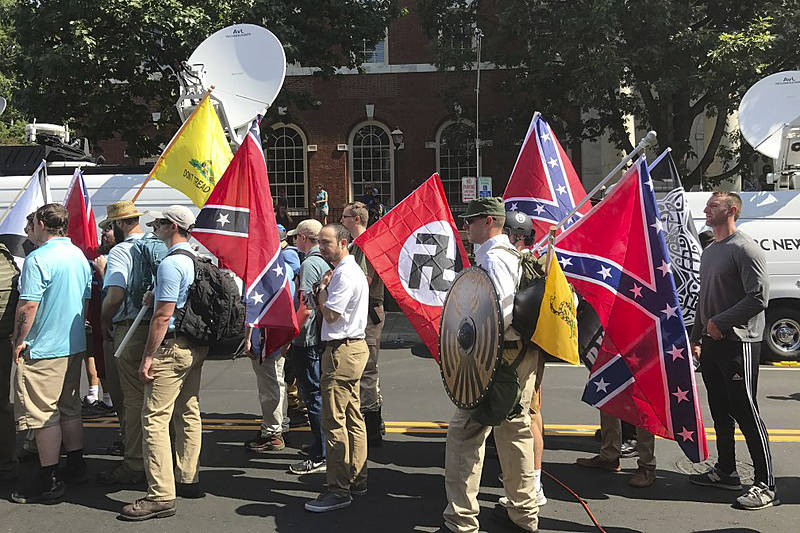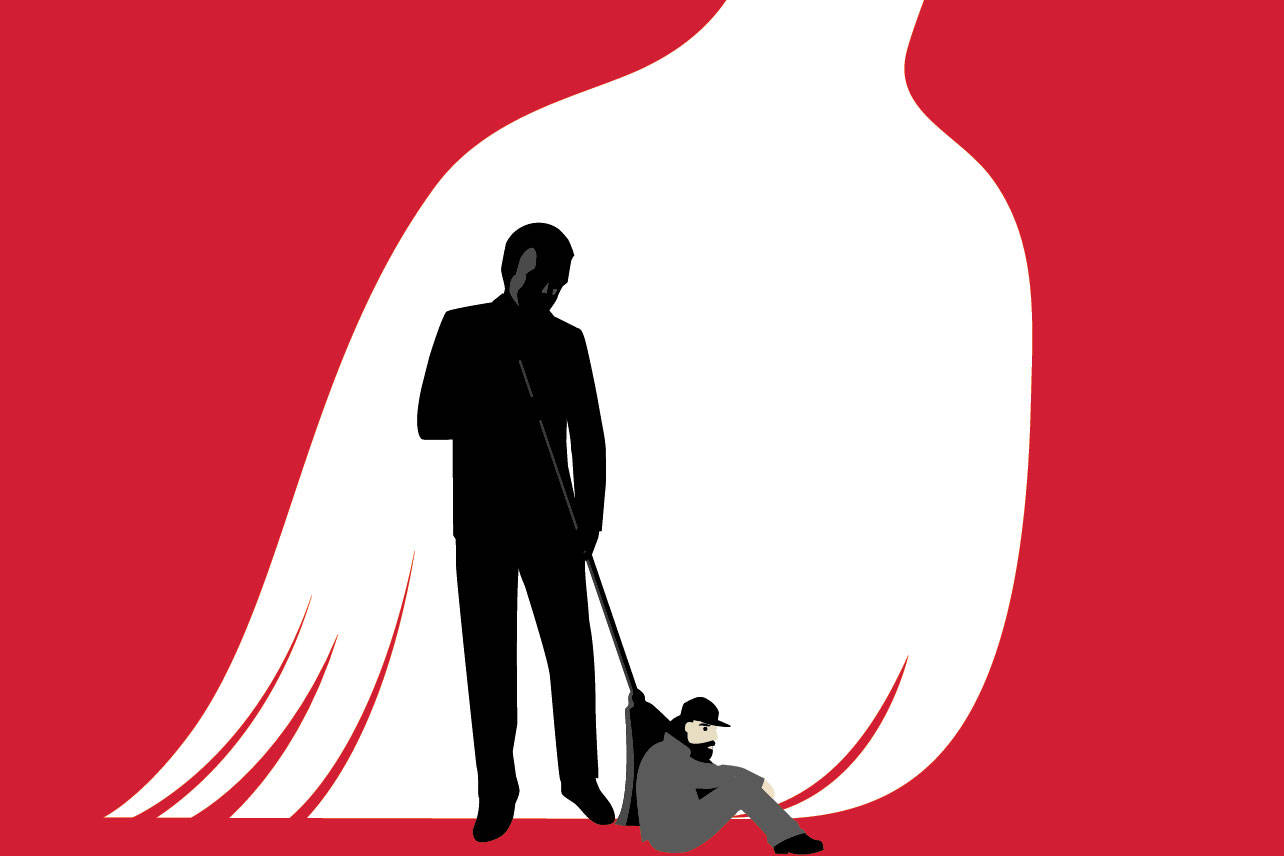The Henry Art Gallery at the University of Washington is currently featuring no. NOT EVER., a multimedia installation on the history and present of anti-racist organizing in the Pacific Northwest. Part of the show features laminated pamphlets that urge readers to deny white supremacists any platform. Freedom of speech for white nationalists, the pamphlets argued, implies less freedom for the groups whom those nationalists want to dominate, deport, or exterminate.
This is a bitter pill to swallow for respectable Seattle liberals. After all, doesn’t violating the sacred protection of free speech make us just as bad as the fascists? That was the thrust of a recent article by Seattle Times columnist Danny Westneat, who lamented the lack of outrage at a man who punched out another man who wore a swastika armband while picking fights downtown. “C’mon, folks, if by chance you run into a wayward Nazi downtown … don’t punch, threaten violence, or censor. All this gets you is the thing you’re supposedly against—more intolerance,” wrote Westneat.
Westneat has a point, but the reasons not to punch a Nazi go beyond mere hypocrisy. That punch, after all, elevated the apparent bigot. After a video of the assault went viral, the swastika-wearer was provided a platform on KUOW. There he told host Bill Radke that he is not a Nazi but a free-speech troll, waving a red cape in front of the vast majority of right-thinking people who find Nazism abhorrent. Believe him or not, the beating he received appears to play into the current fascist handbook, functioning as recruitment propaganda that casts his ilk as victims of an “intolerant Left.”
Earlier this week that troll returned to Westlake, armband included. According to accounts on Reddit that included a photo of the man sitting alone on a bench, people mostly ignored him. In this case, Seattleites’ collective decision to deny the bigot clown the attention he desired appears to have worked better than assault at thwarting his (allegedly ironic) efforts to establish a white ethno-state. Another approach to battling such hate was on display earlier this year when hundreds of Seattleites outshouted a so-called “anti-Sharia” protest in front of City Hall. The effectiveness of such counter-protesting is as difficult to measure, but drowning out Nazis with joyful noise seems to this editorial board like a more effective rhetorical device than a viral video of a punch that turns a hateful agitator into a sympathetic figure.
Yet anyone with eyes to see can perceive a rise of the kind of nativism that imbued that swastika armband with its unique power in the first place. We can argue about how responsible President Trump is for that fact, and, yes, we can wring our hands about the role that isolated attacks on bigot trolls have played. Meanwhile, the fascists’ ranks appear to be growing. So what to do?
First, we must recognize that it can happen here. Maybe it won’t, but it can. Hitler and Mussolini came to power through legal, parliamentary means. Here at home, many Americans are panicked by economic hardship and rapid cultural change, and a sizable minority of us support a race-baiting strongman.
Our government has somewhat resisted the current president’s authoritarian tendencies, providing cover for moderates. But what if moderation fails? How many human beings have to be jailed, deported, or worse to justify a response of direct action or even violence? Will those of us who remain full citizens be content to march with picket signs outside the gates of a new Dachau? Will we be allowed to?
These questions may sound paranoid. But recent events require us to begin to contemplate the unthinkable: There must be some threshold where pure diplomacy ceases. Categorically rejecting violence is easy when you’re not the one they’re coming for, but the ugly truth is that we live in a world where sometimes one must choose between getting punched or doing the punching—on behalf of ourselves or those who are more vulnerable than we are. We urge each of our readers to contemplate where that threshold lies for them personally, keeping in mind the costs of both action and inaction.
At present, we believe that non-violent means—protesting, lawsuits, letter-writing, campaigning—provides the soundest means to arrest a slide toward fascism. Yet we recognize that there may be a time when words become obsolete and more aggressive action becomes obligatory. As George Orwell, who fought fascists in Spain before writing 1984 and Animal Farm, observed, “We have become too civilized to grasp the obvious. For the truth is very simple. To survive you often have to fight, and to fight you have to dirty yourself.”
editorial@seattleweekly.com






